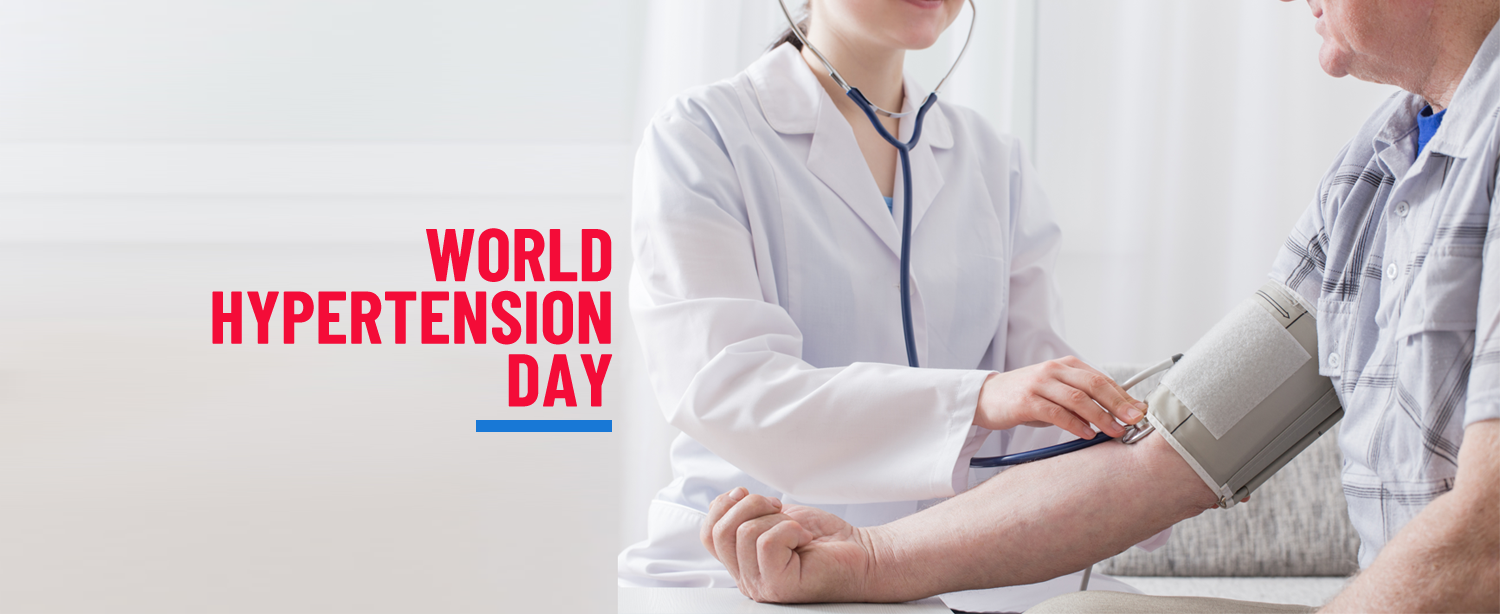Have you checked your blood pressure recently? One in five young adults in India suffer from high blood pressure. Hypertension is a silent killer that can lead to serious complications even before the symptoms appear. Regular health checkups, a healthy diet, and a strict exercise routine all help to control your blood pressure levels. Your diet has a strong influence on your blood pressure and starting early helps maintain healthy blood pressure levels.
Hypertension or high blood pressure is due to the high force exerted by blood against the walls of the artery and is usually defined by a level greater than 130/80 mmHg. Uncontrolled high blood pressure for a while can harm the Kidney (Chronic Kidney Disease, Nephropathy), Heart (Cardiovascular disease risk), Eye (Retinopathy), Brain (Stoke), Nerves (Neuropathy) and can be dangerous during Pregnancy (Pregnancy Induced Hypertension).
Hypertension can be caused due to faulty dietary habits, poor lifestyle, or secondary to a disease, for example, diabetes. Adding extra salt to food preparations daily will lead to water retention in the body, thus increasing the pressure of blood. But one needs to understand that it’s not only the visible salt but also the invisible salt intake that matters and should keep a check on those foods as well like:
- Pickles and papad
- Frozen & ready to eat foods
- Bakery products like bread, biscuits, khari
- Sauces, salted seasonings
- Packaged chips, farsan like samosa, wada, gathia, sev, boondi etc.
Similarly, foods high in saturated fats lead to the build-up of fat in the arteries due to which blood exerts higher pressure to pass through it. Hence it is important to limit the intake of oily & fried foods in the diet.
Healthy diet tips to prevent Hypertension
Including foods low in salt and cholesterol according to the DASH diet (Dietary Approaches to Stop Hypertension) such as:
- Whole grains (whole wheat, millets like ragi, jowar, bajra).
- Fresh vegetables (like beetroot or green leafy vegetables) & fruits.
- Low-fat dairy products (toned, double toned, skimmed milk, low fat curd etc).
- Reducing alcohol intake.
- Including regular physical activity for 30-60min will help manage high blood pressure. (Moderate intensity aerobics: 5-7days/week, Resistance exercise: 2-3days /week, Flexibility exercise ≥ 2-3days/week).
- The European Society of Parenteral Enteral Nutrition Guidelines, recommends <5g of salt (<1Tsp/day) for people with high blood pressure. Also knowing the facts related to hypertension will help make a smart choice.
Myths and Facts of Hypertension
Here are some common myths and facts related to hypertension:
Myth 1: Using sea salt, black salt, pink salt other than table salt will help manage high BP.
Fact – Irrespective of the variety, chemically all salts are the same. They contain sodium which for hypertensives is the key to management.
Myth 2: Exercise increases BP.
Fact- Participation in regular exercise is a key modifiable determinant of HTN for the primary prevention, treatment, and control of high BP. On average, regular aerobic exercise lowers resting systolic BP 5-7 mmHg, while resistance exercise lowers resting systolic BP 2-3 mmHg among individuals with hypertension. (Recommended by ACSM).
Myth 3: Red wine is good for heart health.
Fact – Including red wine in moderation (<2 drinks for men, 1drink for women) can help, but it’s a choice to be given only to alcoholics. It is important to avoid excess alcohol in general as it affects blood pressure.
Myth 4: Complete elimination of salt in the diet.
Fact – Limitation and not elimination is important. It is important to check for sodium or salt in ready-to-eat packaged and processed food items.
Healthy lifestyle changes
Making a lifestyle change rather than using quick fixes will help control high blood pressure. Here are a few tips:
- Read food labels: It is important to be aware of the amount of sodium or salt present in the packaged food.
- Include fibre rich foods in the diet like whole grains, cereals, millets, fresh fruits & vegetables, pulses.
- Include foods like fish, egg, and poultry as they contain Vitamin B12 that helps reduce blood pressure.
- Have nuts like walnuts or almonds, ginger, beetroot, pomegranate, citrus fruits contain arginine (an amino acid) which are precursors for nitric oxide a potent vasodilator.
- Kalonji (Nigella Sativa), barley water, cranberry juice, coriander seeds act as natural diuretics by flushing out the excess water retained in the body.
- Reduce the amount of salt in the diet by using lemon juice, tamarind pulp, onion powder, garlic powder, and amchoor (dry mango powder) to flavour the food preparations.
- Include some form of physical activity daily (walking, running, swimming, dancing, aerobics etc.)
Bhakti Samant – Chief Dietician at Kokilaben Dhirubhai Ambani Hospital shares deep insights about the role of a healthy diet in maintaining your blood pressure levels in the above article. Starting early by modifying your lifestyle helps control your blood pressure levels and avoids complications of hypertension. Concerned about your fluctuating blood pressure levels? Consult our doctors for further medical assistance. Please find below our website details for more information:


